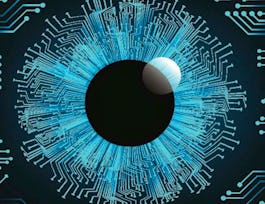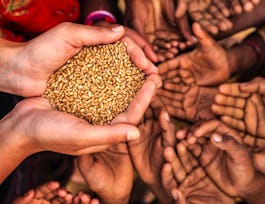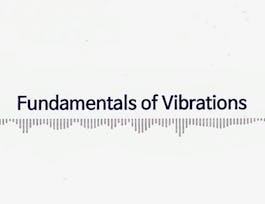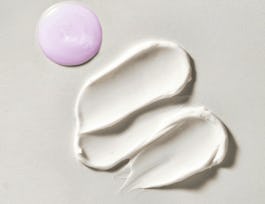Did you know there's a science behind the flavors, textures, and aromas of the foods we eat, and why our favorite products look, feel, and smell the way that they do? In this course, we will provide a broad overview of the field of sensory science - its history, definition, and applications in academic research and in the consumer-packaged goods industry. We’ll also discuss how sensory science impacts other industries, including the medical sciences and information processing. We will also explore the roles of sensory evaluation in relation to the human instrument, marketing, product development, and quality assurance. Whether you are interested in better understanding your favorite foods or looking to expand your knowledge of the sensory sciences, this course is an excellent place to start.



Introduction to Sensory Science
This course is part of Essentials of Sensory Science Specialization

Instructor: Rebecca Bleibaum
Sponsored by Mojatu Foundation
2,439 already enrolled
(34 reviews)
Details to know

Add to your LinkedIn profile
4 assignments
See how employees at top companies are mastering in-demand skills

Build your subject-matter expertise
- Learn new concepts from industry experts
- Gain a foundational understanding of a subject or tool
- Develop job-relevant skills with hands-on projects
- Earn a shareable career certificate


Earn a career certificate
Add this credential to your LinkedIn profile, resume, or CV
Share it on social media and in your performance review

There are 4 modules in this course
In this module, we will explore the history of sensory science, provide a definition of sensory science, and describe the array of senses involved in our studies. We will also discuss the disciplines involved in the study of sensory science and describe three testing methods. Let's get started.
What's included
7 videos3 readings1 assignment1 discussion prompt
Where does sensory science fit into the world from a broader perspective? In this module, we will discuss the various applications of basic sensory research and how it impacts our work. We will also discuss how sensory science impacts the medical sciences, communication and information processing industries. We will end this module with a discussion on transduction and how nutrition plays a role in sensory research. Let's begin.
What's included
5 videos1 assignment
The more we understand about how the human works, the more we understand about our data collection instrument — people. In this module, we will discuss the roles of sensory evaluation in relation to the human instrument, grading, and quality assurance. Let's begin.
What's included
5 videos1 assignment
In this final module, we will continue our discussion on the roles of sensory evaluation in relation to chemical/physical properties, product development in both food and non-food products. This module will end with an optional podcast conversation with Dr. Herbert Stone. Let's wrap things up.
What's included
5 videos3 readings1 assignment2 discussion prompts
Instructor

Offered by
Why people choose Coursera for their career




Learner reviews
34 reviews
- 5 stars
64.70%
- 4 stars
23.52%
- 3 stars
11.76%
- 2 stars
0%
- 1 star
0%
Showing 3 of 34
Reviewed on Oct 2, 2023
Inspiring and very motivating to deep dive into sensory science. A
Recommended if you're interested in Business

Columbia University

Utrecht University

Korea Advanced Institute of Science and Technology(KAIST)

Open new doors with Coursera Plus
Unlimited access to 10,000+ world-class courses, hands-on projects, and job-ready certificate programs - all included in your subscription
Advance your career with an online degree
Earn a degree from world-class universities - 100% online
Join over 3,400 global companies that choose Coursera for Business
Upskill your employees to excel in the digital economy



